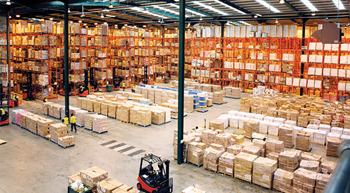E-commerce retailing and associated logistics challenges are creating opportunities for e-commerce companies and logistics providers to work in coherence for inclusive growth.
E-commerce retail linked activities have been driving significant investment and value for the Indian logistics sector and have emerged as an important segment of the Indian logistics spectrum. The e-commerce retail market is amongst India´s fastest growing and exciting markets. It is poised to be worth $36.5 billion by 2020, from $3 billion in 2014, growing at a CAGR of approximately 52 per cent. Factors driving this growth include rapid rise in internet and digital device penetration, favourable shifts in user demographics, easing market regulations and compelling propositions offered by e-commerce retail companies. The segment has witnessed rapid scale-up in service orientation and complexity.
Logistics is a key enabler for the growth of the sector and is emerging as a differentiator for customer service and satisfaction. To build scale while sustaining business margins, e-commerce retailers are increasingly partnering with logistics players in India. Several e-commerce retail companies are also investing in building their logistics networks and capability. Development in the sector continues to be driven by the mutual growth that logistics, e-commerce and technology have brought to each other.
The e-commerce logistics market is witnessing an increase in delivery speed, upgraded warehousing infrastructure, better service capabilities, technological advancements and innovations for service providers. Logistics operations are evolving from being generally manual to increased use of technology and automation at the time of ordering, sorting, track and trace, warehousing, reverse logistics, etc. There is an increasing need for advanced warehousing, including mega e-fulfillment centres, parcel hubs and sortation centres, efficiency when it comes to last mile delivery, along with improvement in infrastructure. The Goods and Services Tax (GST) is expected to drive this, with the consolidation of distribution networks, thereby increasing the demand for larger distribution centres.
The key factors contributing to the success in the e-commerce space are efficiency of the network, timely delivery and responsiveness to customer demands, while maintaining agility in the supply chain. Logistics driven by technology is likely to continue to shape e-commerce in the coming times.
Growth in the sector presents significant opportunities for logistics companies to adopt and take onto e-commerce, along with an increasing complexity in e-commerce retail logistics, given the distinctive service levels, increasing reach, supply chain security requirements and the surging demand for day-definite and time-definite delivery services. Henceforth, logistics providers could expand strategically as well as functionally to capture the emerging opportunities from e-commerce.
A sustained growth of over 50 per cent in the Indian e-commerce retailing industry underlines the need for efficient and sustainable logistics operations for several sizes of e-commerce retailers in India. The market place model is expected to continue to gain prominence and a combination of delivery speed, upgraded warehousing infrastructure, better service capabilities, technological advancements, and innovations could be some must-haves for the e-commerce logistics service providers in the long run.
This article has been authored by Jaideep Ghosh, Partner and Head, Transport and Logistics, KPMG in India The information contained herein is of a general nature and is not intended to address the specific circumstances of any particular individual or entity. The views and opinions expressed herein are those of the author and do not necessarily represent the views and opinions of KPMG in India.



Leave a Reply
You must be logged in to post a comment.